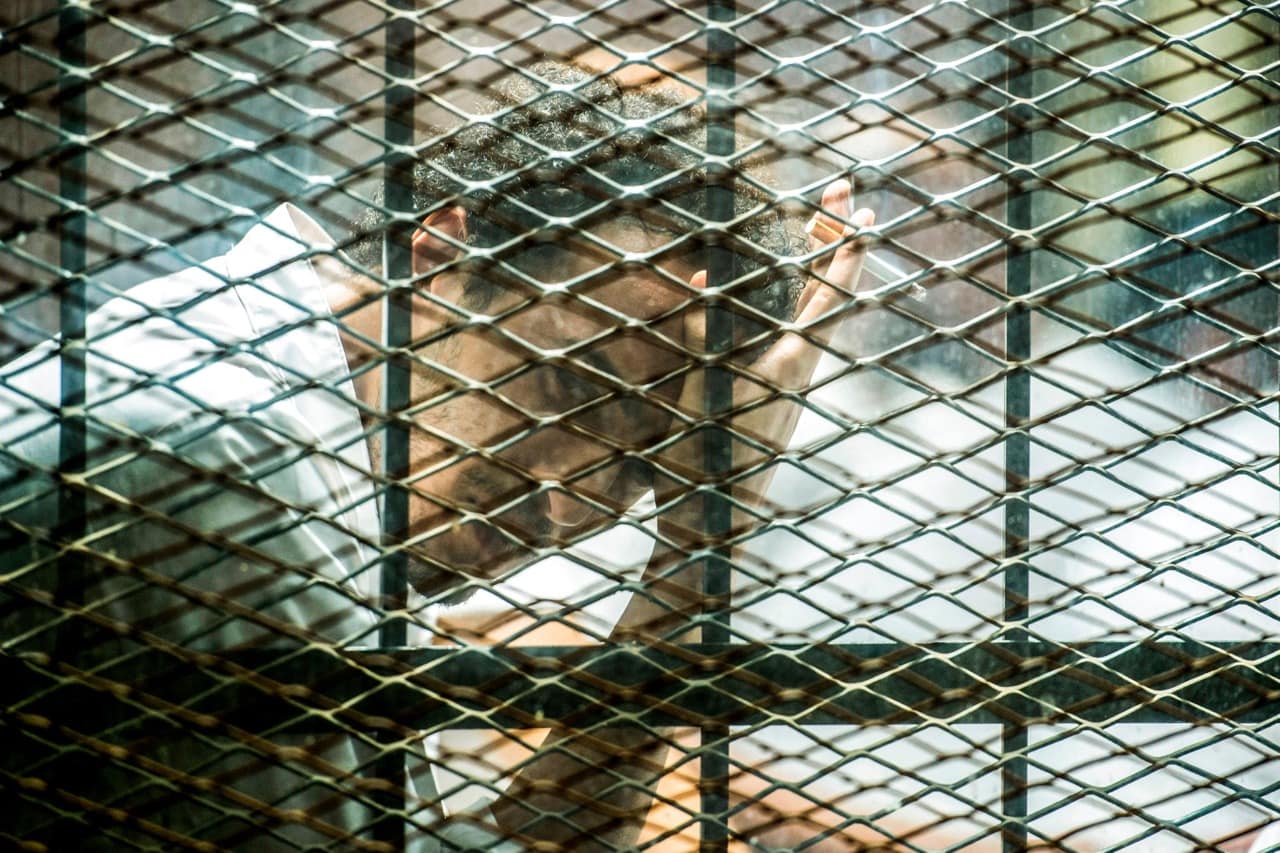Shawkan's lawyer reports that the prosecutor's office has now decided to extend his detention by six months, which would mean he would not get out of prison until mid-February 2019.
This statement was originally published on rsf.org on 15 November 2018.
Reporters Without Borders (RSF) calls for the immediate release of Mahmoud Abou Zeid, the Egyptian photojournalist also known as Shawkan, who should have been freed after getting a five-year jail sentence in September because he had already been held arbitrarily for more than five years. Prosecutors now say he will be held until mid-February.
Shawkan completed his fifth year in detention on 14 August, three weeks before a court finally sentenced him to five years in prison. He has been held ever since his arrest on 14 August 2013 while covering the use of deadly violence to disperse a mass protest in support of the then recently deposed Muslim Brotherhood government.
In Egypt, prisoners often have to wait several days or even weeks between a release order and their actual release. According to Shawkan’s lawyer, the delay has lasted so long in his case because he has not yet been able to make the payment of legal costs or a possible fine that is necessary before being released.
Nonetheless, a release can be delayed for no more than three months on the grounds of non-payment and those three months expired yesterday in Shawkan’s case.
The reason why Shawkan has not been able to pay his legal costs is surreal. Because he was one of several hundred defendants in the same mass trial, the judicial authorities have apparently been overwhelmed and have not yet been able to tell him how much he owes.
Shawkan’s lawyer reports that the prosecutor’s office has now decided to extend his detention by six months, which would mean he would not get out of prison until mid-February 2019.
“Shawkan’s detention was already unacceptable,” said Sophie Anmuth, the head of RSF’s Middle East desk. “He should never have spent even a single day in prison just for doing his job as a journalist. Prolonging his detention on unfair administrative grounds is even more incomprehensible. Keeping him in prison now is contrary to all principles of law. Shawkan must be freed at once.”
Shawkan will not be completely free even after he is released. Unless his sentence is overturned on appeal, his release will be conditional for five years, which could mean having to spend nights in a police station.
With at least 38 professional and non-professional journalists currently held in connection with their reporting, independent journalism is dying in Egypt, which is ranked 161st out of 180 countries in RSF’s 2018 World Press Freedom Index.



